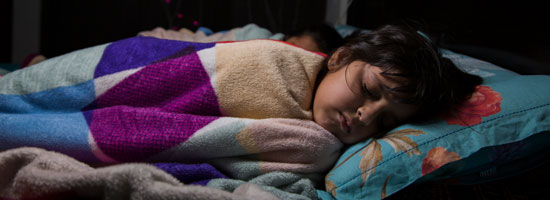There's research suggesting childhood cancer survivors are more likely to experience sleep problems. This makes sense since sleep disorders in the general population are often linked to emotional and physical health. One study that involved nearly 2,000 childhood cancer survivors showed that some sleep problems continued later into life as young survivors grew older.
Daytime Sleepiness
A lack of sufficient sleep in children with cancer may contribute to excessive daytime sleepiness (pediatric hypersomnia), which can be especially troublesome when there's a need to stay awake in school or be alert during certain medical tests. Increased daytime drowsiness could also lead to difficulties with concentration and attentiveness and related behavioral issues.
Poor Sleep Quality
In addition to daytime sleepiness, children with cancer may have several problems with the quality of their nighttime sleep. Part of the reason for this may be concerns about their illness. Other times, however, sleep may be affected by:
- Medications being taken for cancer
- Chemotherapy, which may make it difficult to stay asleep during the night
- Excessive daytime napping due to increased fatigue because of cancer treatments
Managing Sleep Problems
The way sleep problems in children are managed will depend on what's contributing to them. For instance, if a child is having trouble sleeping because of added emotional stress, therapy may help them deal with their concerns in a way that's appropriate. It can also be beneficial to encourage your child to share their feelings about their illness. Some children are better able to do this by drawing instead of with words.
If there are issues with medication, it may be possible to adjust dosages or change the times when medication is given. Children living with cancer having sleep problems may also benefit from:
- Warm baths before bed to promote relaxation
- Nightlights in hallways to create a sense of added safety
- Maintaining a regular bedtime routine
- Restricting liquids before bed since bedwetting sometimes occurs in children also undergoing chemotherapy sessions
- Using quiet music and soft lighting to ease nighttime stress
The quality of a child's sleep and any related issues they may have could also depend on the type of cancer they have. Children with brain cancer, for instance, tend to have more difficulties with sleep because of the way neurological functions may be affected by the disease. Regardless of the nature of the disease, there may be ways to encourage productive and beneficial sleep patterns. In order to increase the odds of this happening, be as descriptive as possible about your child's sleep problems when seeking medical advice.

